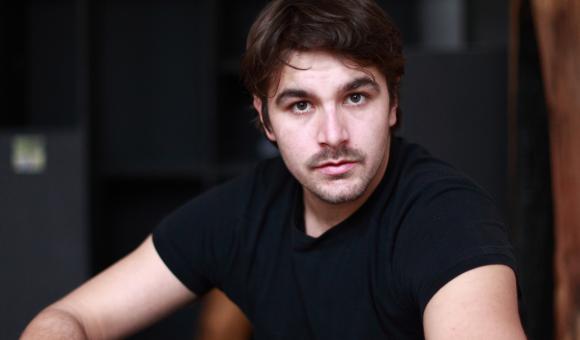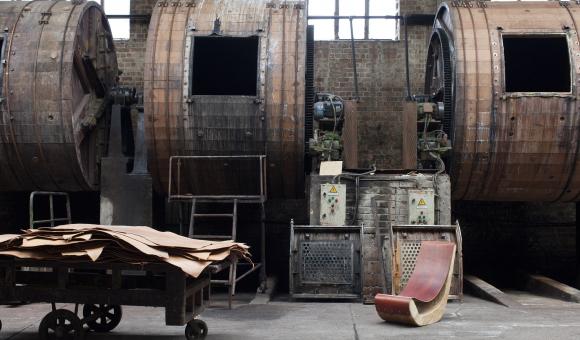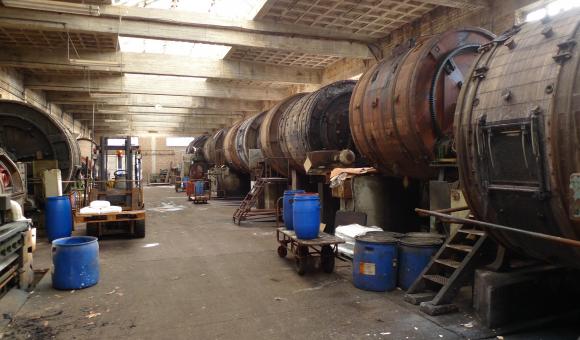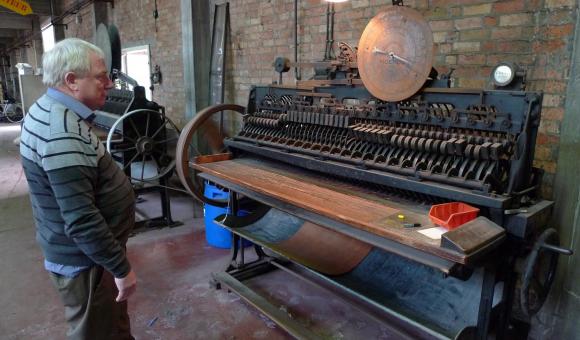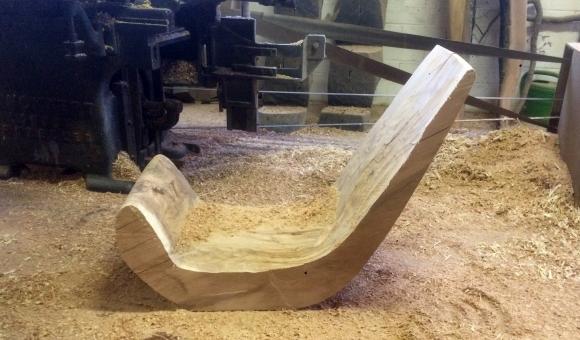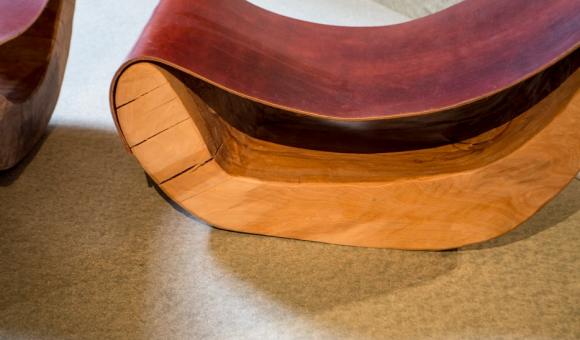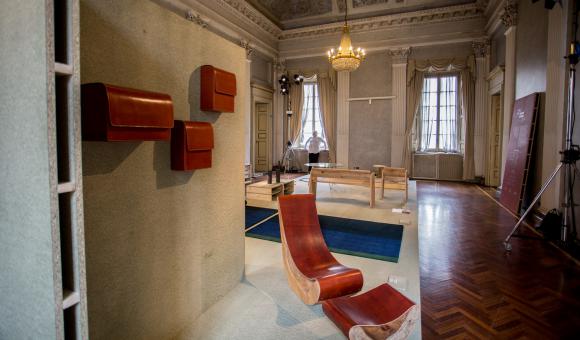
For the Milan Trade Fair, Kaspar Hamacher and the Radermecker tannery have joined forces for an armchair prototype, exhibited at the event “A Matter of Perception: Tradition & Technology” held by Belgium is Design and DAMN° magazine.
Let’s start with a classic question: who are you, Kaspar Hamacher?
The answer won’t be as classic as the question because my work lies where the realms of design, craftsmanship and art converge. I’m a joiner and carpenter by training. I then took an art course in the Netherlands. There, I developed a personal approach to working with wood that I’m still pursuing now. Today, I live and work in the region where I was born, near Eupen, very close to the forest. My designs are unique pieces, positioned somewhere between sculpture and furniture. I love working with rough wood, using tough methods of treating the material, such as cutting it with a chainsaw or using fire for my Ausgebrannt collection.
Where can we see your work?
All over the place, to be honest. Firstly, in my studio, as well as abroad. I have a lot of clients in Paris and New York. I’m currently working with two galleries based in Berlin and San Francisco. I don’t have a producer-dealer because I want to carry out every aspect of the production of my pieces myself. They’re unique and tailor-made. For that reason, the distribution channels and outlets for my work lie more in the sphere of galleries and exhibitions. I’m approached on a regular basis to show my work in cultural institutions. Last year, for example, I took part in the "Futur Archaïque" exhibition organised by the CID (Centre for Innovation and Design) of the Grand-Hornu. The exhibition was also presented at the MUDAC (Museum of Contemporary Design and Applied Arts) in Lausanne, Switzerland. This year I’m taking part in the Milan Trade Fair for the fourth time. The fair is a fantastic way into the professional world of design and gives you a priceless level of international visibility.
This year, you exhibited a project there that you carried out in partnership. Can you tell us about your partner?
It’s Tannerie Radermecker based in Warneton, in Hainaut. The firm has been in existence since 1870. It offers an outstanding level of know-how in the field of leather. Their work covers every stage of processing, from receiving the hides through to obtaining the finished leather. What’s so special about the tannery is that it works with cow hide and produces a thick leather suitable for industrial applications, among other things. Around fifteen years ago, it began opening up to other sectors of activities such as saddlery and furniture-making. It has a factory workshop, which sets it apart from other firms in the sector. The traditional work carried on at Radermecker has been passed down through the years and is practically disappearing in Belgium and from Europe. I hope that the project presented in Milan will help to promote their activity and enhance the status of leather-working in general.
What's the role of the tannery?
The Radermecker tannery gave me access to a raw material of exceptionally high quality. It also guided me towards the great potential of shaping, sleeking and treating leather. The opportunity to immerse myself in this exceptional world was fantastic for me. As a designer and artist, I’ve finally been able to take liberties with the traditional methods of tannery. I wanted to use a very thick leather, in its rawest state. I bypassed the stage of treating and conditioning the leather, which refines it and makes it “workable” with tanner’s tools. As with my woodwork, I wanted to use a raw, whole material, to which I apply a strong mechanical treatment.
What's the project being presented at the Milan Trade Fair?
It’s a prototype of a low armchair. The project came about from my wanting to rework leather, which I experimented with several years ago. It consists of a monolithic piece of wood, which serves as the armchair frame, and of a thick leather hide, stretched taut and tacked to the wooden seat. Leather and wood are two natural, strong and dense materials, one rigid, the other supple. Creating a dialogue between them opens up new possibilities for my work. The armchair is the first piece of a future collection which will be completed with side chairs, benches and footrests.
Sylvie Reversez
Find all the latest on designers from Wallonia-Brussels on the Wallonia-Brussels Design/Fashion Website.
Linked articles
Related articles
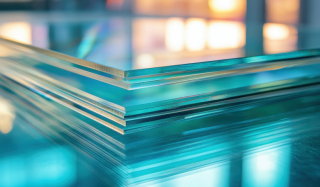
A new, innovative and environmentally-friendly flat glass production process developed in Wallonia
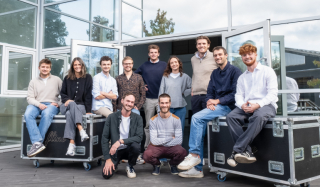
Breathalyzer boxes from Walloon company Fline expand internationally
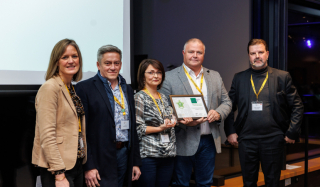
JOST logistics company leads the way in terms of sustainability

